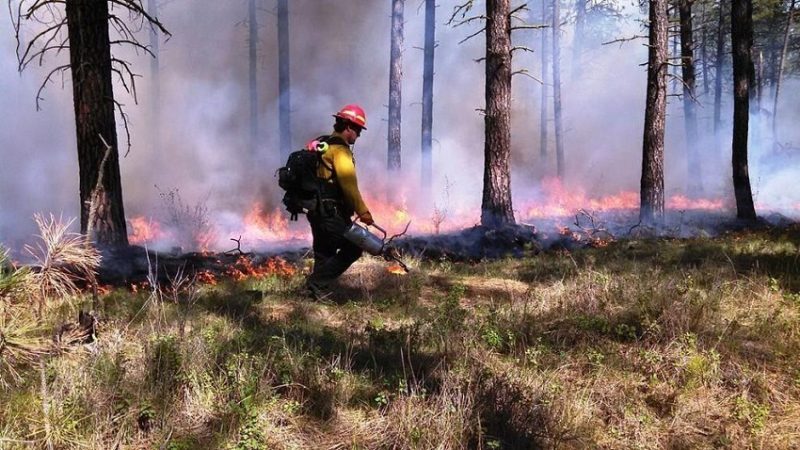Medford, OR – As Oregon braces for another potentially devastating wildfire season, state and federal leaders are calling for urgent action to reduce the growing threat. With rising temperatures and increasingly dry conditions, both U.S. Senator Ron Wyden and Oregon State Senator Jeff Golden are emphasizing the need for a coordinated response at all levels, from federal funding to individual property preparedness.
Senator Wyden, who represents Oregon in the U.S. Senate, has made wildfire prevention a key priority as he pushes for additional funding in the upcoming federal budget. “We’ve gotta move,” Wyden stated, underscoring the immediate risk posed by dry conditions. “Because in our part of the world, you have a match go somewhere or a lightning strike, and all of a sudden you’ve got an inferno on your hands.”
One of Wyden’s top concerns is securing funding for critical wildfire prevention measures, such as prescribed burns and forest thinning. These steps are designed to reduce fuel buildup in overgrown, fire-prone areas that are particularly vulnerable during the dry summer months. Wyden is working to ensure that these measures are included in the federal budget, as well as advocating for better pay for firefighters—a group Wyden believes has long been undercompensated for their dangerous work.
“It defies common sense that we’re still underpaying people who are risking their lives to protect our communities,” Wyden told NewsWatch 12. “This isn’t something we can delay. It needs to be locked into the fall budget.”
While federal action is crucial, Senator Jeff Golden, who represents southern Oregon in the state legislature, highlighted the importance of individual responsibility in wildfire prevention. Golden urged Oregonians to take steps to prepare their properties by clearing brush and debris, a measure that can reduce the risk of fires spreading to homes.
“We, on the state level, among other things, are asking people to do everything they can to reduce the risk on their own property in their yards and their homes,” Golden said.
However, Golden acknowledged that many residents are frustrated by the lack of management in federal forests, which are often overgrown and left vulnerable to wildfire. “Some folks say, ‘Why should I do that when it’s the federal forests that are such a mess? Overgrown slashes from past operations, I don’t see anything happening there. Go talk to them, don’t talk to me,’” Golden explained.
Despite these frustrations, Golden emphasized that both local and federal efforts are necessary to protect communities. He noted that fires, once they reach populated areas, can rapidly become catastrophic, citing the Almeda fire as a recent example of a blaze that moved quickly through communities with little time for residents to evacuate.
“It’s both-and, not either-or,” Golden said. “These fires, once they get to a community, just blow right through ’em.”
Both Wyden and Golden agree that a combination of federal funding, state-level action, and local preparedness is the best strategy to protect Oregon’s communities from the devastating impact of wildfires. As conditions continue to worsen, officials are stressing that immediate action is essential to reduce the risks and prevent another destructive fire season.

